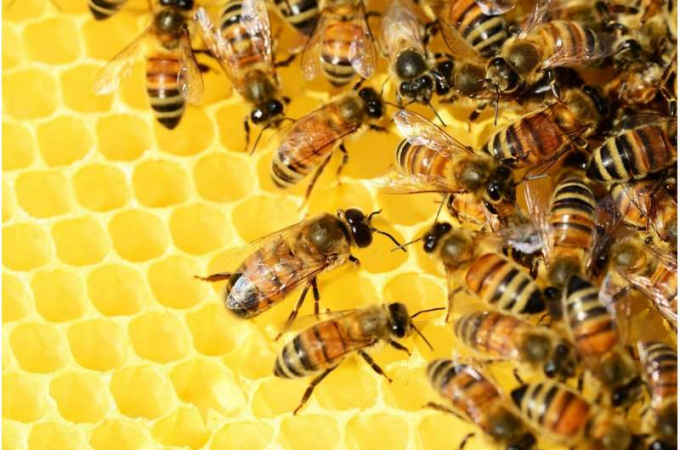May 16, 2025 | 09:55 GMT +7
May 16, 2025 | 09:55 GMT +7
Hotline: 0913.378.918
May 16, 2025 | 09:55 GMT +7
Hotline: 0913.378.918

Credit: Pixabay/CC0 Public Domain
A team of researchers from the University of Sydney, the ARC-Plant Protection Research Institute and York University, has found that workers in a species of honeybee found in South Africa reproduce by making near-perfect clones of themselves.
In their paper published in Proceedings of the Royal Society B, the group describes their study of the bees and what they learned about them.
Prior research has found that some creatures reproduce through parthenogenesis, in which individuals reproduce without mating. This form of reproduction has the advantage of not wasting time and energy on mating and the gene pool remains undiluted. The downside, of course, is loss of genetic diversity, which helps species survive in changing conditions.
Prior research has also shown that for most species, parthenogenesis is a less-than-perfect way to produce offspring. This is because some tiny bit of genetic material is generally mixed wrong—these mistakes, known as recombinations, can lead to birth defects or non-productive eggs. In this new effort, the researchers have found a kind of honeybee that has developed a way to avoid recombinations.
The researchers found that South African Cape honeybee queens reproduce sexually, but the workers reproduce asexually. They then conducted a small experiment—they affixed tape to the reproductive organs of a queen, preventing males from mating with her, and then allowed both her and the worker bees in the same hive to reproduce asexually.
They then tested the degree of recombination in both. They found that offspring of the queen had approximately 100 times as much recombination as the worker bees. Even more impressive, the offspring of the worker bees were found to be nearly identical clones of their parent. More testing showed that one line of worker bees in the hive had been cloning themselves for approximately 30 years—a clear sign that workers in the hive were not suffering from birth defects or an inability to produce viable offspring.
It also showed that they have evolved a means for preventing recombination when they reproduce. The researchers note that despite their unique abilities, the bees are still in line with evolutionary theory—they are simply doing what works best for their continued existence.
(Phys.org)

(VAN) Veterinary training should focus on quality, not just quantity. Veterinarians also need more options to pursue specialized training.

(VAN) The veterinary industry needs to be viewed objectively and further invested in to properly demonstrate its role and importance in the new context.

(VAN) The number of veterinarians graduating each year is not enough to meet actual needs, hence a difficult problem for the growing livestock industry.

(VAN) The strategic partnership between Cambodia, the Philippines, Vietnam, and CGIAR ensures that innovative solutions effectively address national priorities for food system development.

(VAN) This was affirmed by the UK Minister of State at the Department for Environment, Food and Rural Affairs during a working session with Deputy Minister Tran Thanh Nam on May 13.

(VAN) On May 13, the Ministry of Agriculture and Environment, in coordination with the Embassy of Vietnam in the United Kingdom, organized a seminar titled 'Connecting trade in Vietnam-UK agricultural, forestry, and fishery products'.

(VAN) The launch of the Vietnam green and low-emission rice brand is a positive signal for both businesses and farmers, marking readiness to reach new heights in the global market.